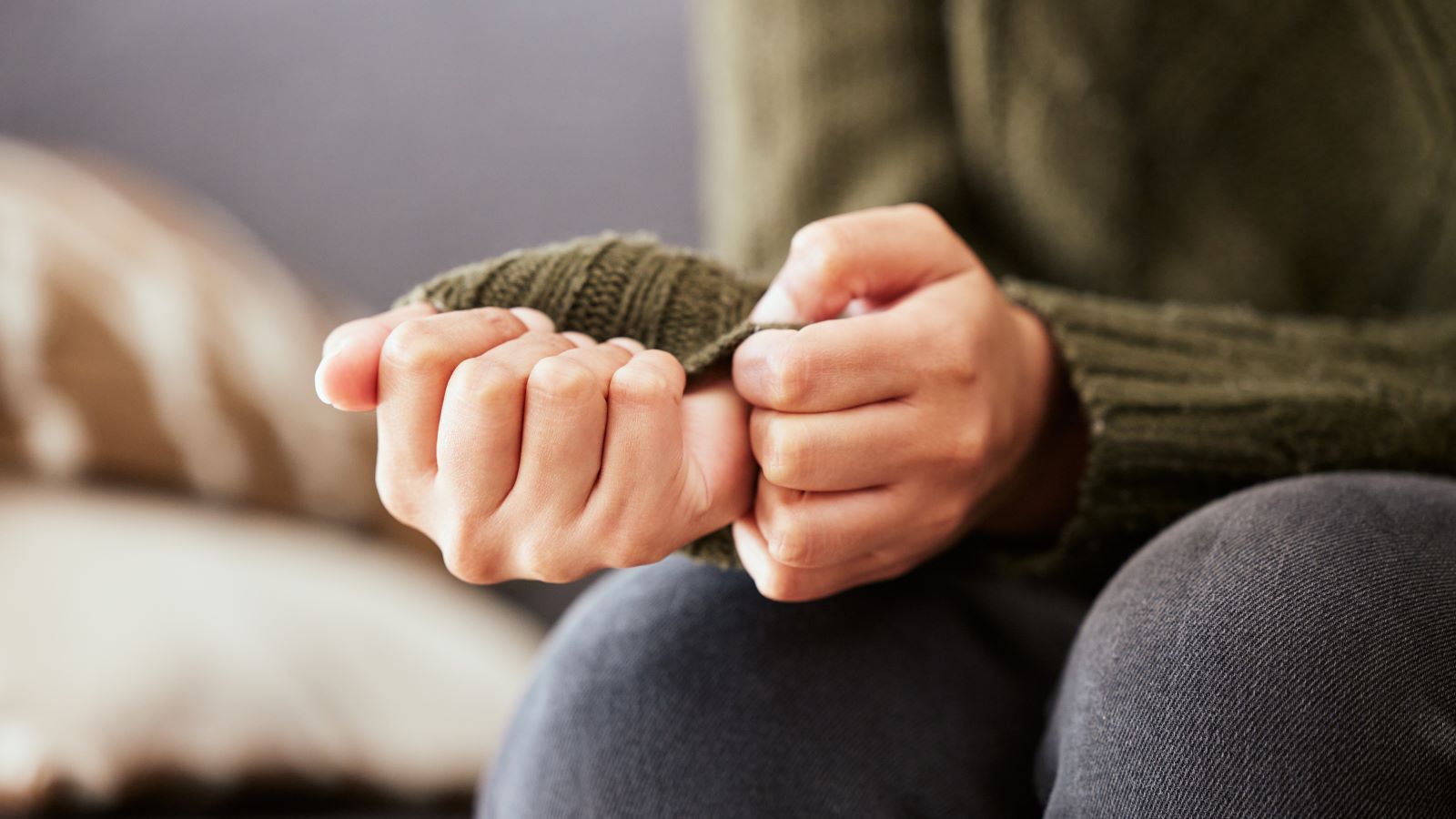<< Back
9 Physical Symptoms Caused by Anxiety

December 20, 2023
The cause of your stomach ache, headache or fatigue can sometimes be more than just a physical ailment.
Mental health conditions like anxiety can often be the cause of physical symptoms, says Ila Sabino, PhD, program manager of the Division of Health Psychology at the Institute of Living, part of the Hartford HealthCare Behavioral Health Network.
“We always want people to take good care of their health and not ignore concerning physical symptoms when they arise,” she begins. “However, it’s important for anyone experiencing certain symptoms to be curious about what else is going on at the moment.”
Connect with the HHC Behavioral Health Network
Start here
9 common physical signs of anxiety.
Almost one in three adults will experience some kind of anxiety disorder in their lifetime, Dr. Sabino says.
“We also know people with anxiety symptoms are more likely to visit their doctors with physical complaints. So it’s helpful to have providers who understand the relationship between physical and mental health,” she explains. “Anyone going through a particularly stressful time may be able to connect physical symptoms to their emotional distress.”
Symptoms related to anxiety include:
- Dizziness or light-headedness
- Nausea
- Excessive sweating
- Shortness of breath
- Chest pain
- Headaches
- Insomnia
- Muscle tension
- Stomachaches or other symptoms of gastrointestinal distress
“At the same time, people can have a medical condition or physical symptoms that prove to be a source of anxiety. We want to make sure we stop the cycle of worry and give them ways to relax and calm themselves,” Dr. Sabino adds.
> Related: Why Adults Under 65 Should Have Annual Anxiety Screenings
The mind-body connection is surprising to many, and a relief to others.
“People are often very surprised to learn physical symptoms can be traced to anxious thoughts and feelings or stressful life events,” she continues.
Some are relieved when they find out they can feel better physically by managing their stress and anxiety more effectively. Others might be concerned they’re not being take seriously by their healthcare provider, Dr. Sabino says.
“As health psychologists and clinicians working in integrated medical settings, we really try to help people understand that the body and mind are deeply connected. It’s often best to think of treatment holistically by addressing the full range of experiences,” she explains.
The good news – treatment works.
The type of help you seek for anxiety and related symptoms depends on the severity of those symptoms and your preference.
“Sometimes, an empathetic primary care provider who understands the mind-body connection can explain both aspects of the person’s symptom experience in a way that is supportive and resonates with them, which might be enough to provide some symptom relief,” Dr. Sabino says.
Primary care providers can prescribe medication to help reduce symptoms of anxiety, but if your anxiety is impacting your health, work, social life or relationships, you might benefit from meeting with a behavioral health clinician and/or psychiatrist, she says.
“The good news is that anxiety is a very treatable condition. Things like relaxation training, yoga, meditation and cognitive behavioral therapy can be very effective in reducing it,” she says. “Medication can work alongside these interventions to provide more relief if needed.”